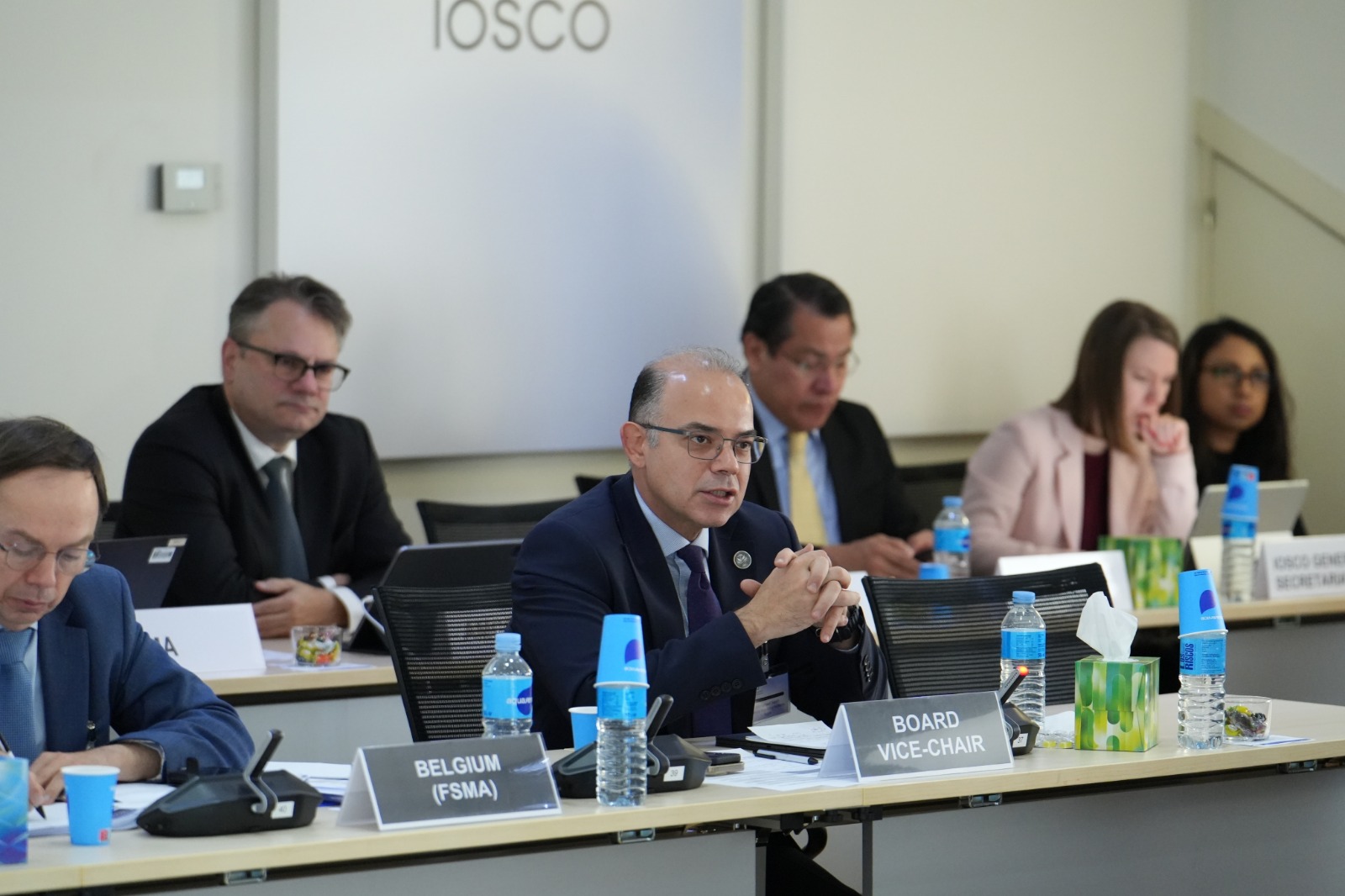- Chair of the Financial Stability Board (FSB) simultaneously holds the position of Governor of the Bank of England
- The primary discussion centered on finding ways to enhance cooperation and synergy between the IOSCO and the Financial Stability Board (FSB).
- As well as reviewing the most prominent reforms across global markets.
Dr. Mohamed Farid – FRA Chairman:
- Rapid global developments require a complete overhaul of the current model for managing crises and systemic risks.
- Traditional crisis models cannot cope with modern risks, which are rapidly changed and accelerated by new financing and investment technologies.
- A more flexible and comprehensive international framework is essential to enhance the ability to proactively anticipate and manage emerging risks.
Dr. Mohamed Farid, FRA Chairman and Vice Chair of the IOSCO Board, participated in the Organization’s high-level meeting with Andrew Bailey, Chair of the Financial Stability Board (FSB) and Governor of the Bank of England. Mr. Bailey joined the session virtually. The meeting took place in Madrid, Spain, during the IOSCO Board meetings held on October 27th and 28th.
The meeting addressed the most prominent reforms witnessed by the markets, as well as avenues for cooperation and coordination between the IOSCO and the Financial Stability Board (FSB). This collaboration aims to support stability of the global financial system and enhance its resilience in the face of volatility and challenges present in international markets, especially in light of the accelerating developments in financing tools, trading patterns and investment models.
Dr. Farid stated that continuous market developments since the 2008 Global Financial Crisis require a complete reassessment of the global model for managing financial crises and systemic risks. He added that traditional crisis management models cannot cope with modern challenges. Innovative financial instruments and technologies have sparked deep market shifts, drastically altering the nature of risks and accelerating their spread across borders and sectors. Also, Dr. Farid stressed the importance of developing a more comprehensive and flexible international framework that can accommodate the rapid changes in capital markets and enhance the ability to predict and proactively deal with risks in a manner that ensures the stability and sustainability of the global financial system.
FRA Chairman stressed that financial stability underpins sustainable economic growth. To achieve this, regulators must develop frameworks characterized by flexibility and efficiency – ones that successfully integrate new financial innovations while strictly maintaining the integrity of the financial system and protecting investors. He concluded that sustained cooperation between key bodies, particularly IOSCO and the FSB, is the core element for building a crisis-resilient global system and enhancing trust in the markets.
Dr. Mohamed Farid also stressed the importance of enhancing international cooperation and coordination among regulatory bodies and global financial institutions in developing regulatory and supervisory policies. This cooperation supports market stability and mitigates cross-border systemic risks. He explained that current challenges demand a collective response, as countries must exchange expertise and align regulatory frameworks to handle the rapid changes in financial markets more coherently. He pointed out that achieving financial stability is no longer solely a local responsibility, but a common global goal that necessitates policy coordination and integrated roles among regulators at the regional and international levels. This is crucial to ensure sustainable economic growth and protect the safety and stability of the global financial system. He further highlighted that international cooperation is a fundamental pillar for strengthening the institutional structure of markets, boosting their efficiency and flexibility in facing potential shocks and crises.
In conclusion, participants emphasized the need for sustained coordination between the IOSCO and the FSB. This joint work is strategically vital for developing policies that boost the worldwide resilience of financial systems. The ultimate goal remains achieving a careful balance between fostering financial innovations and ensuring sustainable stability within global markets. This meeting was held as part of the IOSCO and the FSB’s commitment to support dialogue and coordination among international regulatory bodies to ensure the stability and efficiency of global financial markets
Last modified: November 2, 2025
